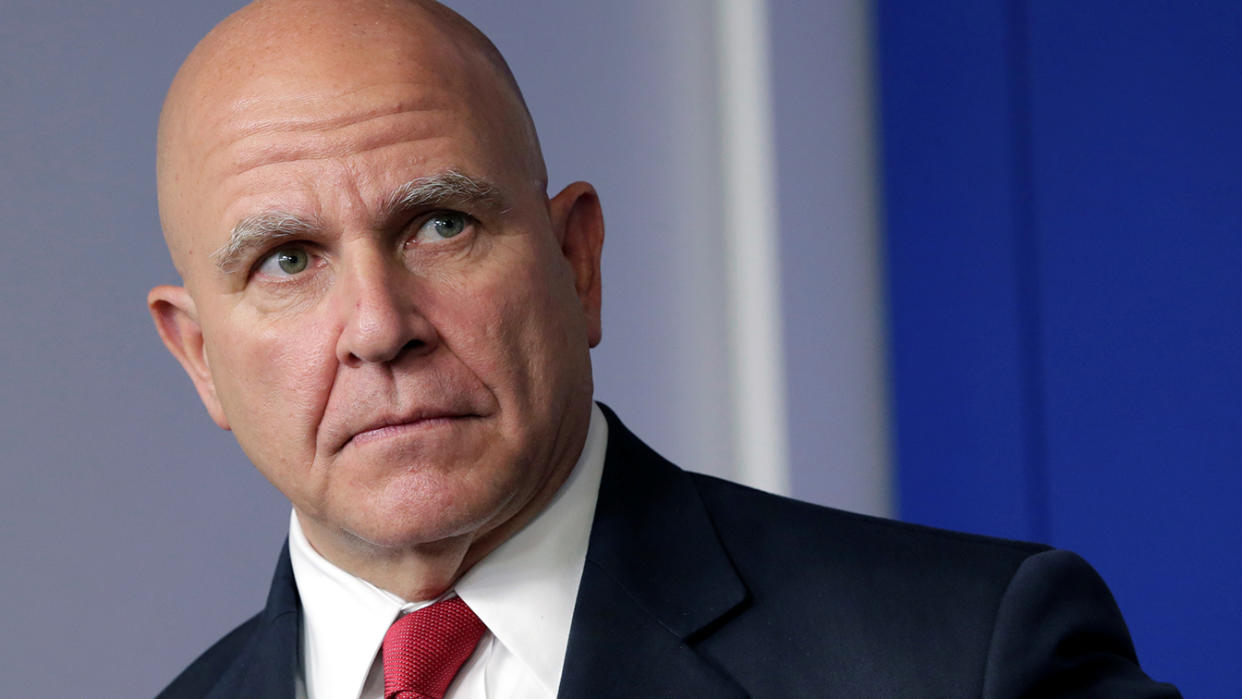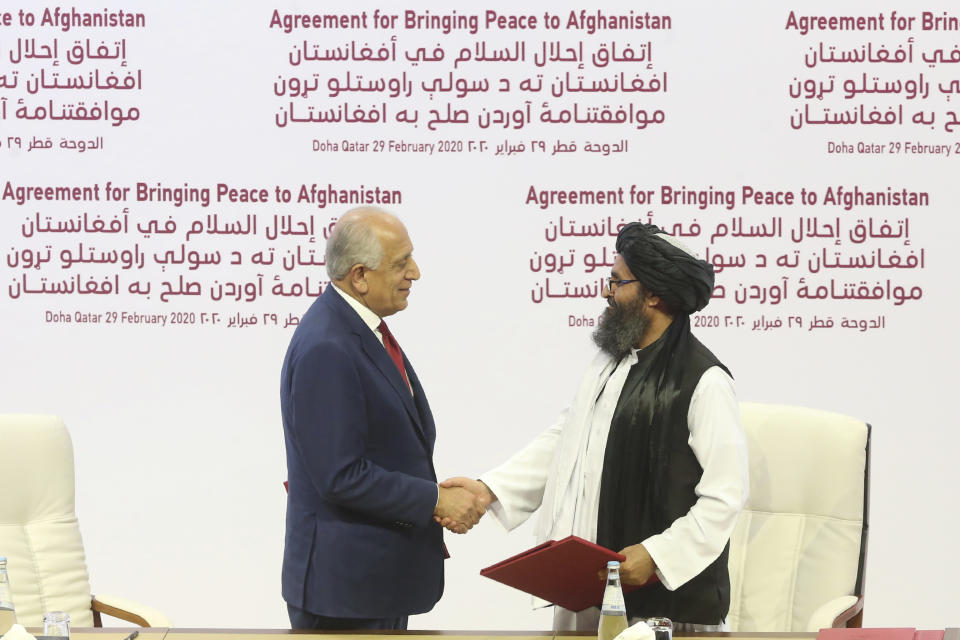McMaster trashes Trump's Afghan peace plan

WASHINGTON — President Trump’s former national security advisor, retired Army Lt. Gen. H.R. McMaster, launched a blistering attack on the Trump administration’s Afghanistan peace negotiations Wednesday, accusing the administration of making “a tremendous mistake” by appearing to partner with the Taliban against the Afghan government.
Trump has long argued that U.S. troops should withdraw from Afghanistan, but McMaster said the way the president is going about it is wrong. “What we’re doing is an utter disaster and we and the Afghan people, sadly, may have to pay a much higher price as a result,” McMaster said during a webcast hosted by Arizona State University. “The Afghan people don’t want this.”
Those comments came the same day that Trump’s current national security advisor, Robert O’Brien, said publicly the U.S. would go down to 2,500 troops early next year.
McMaster, who commanded an anti-corruption task force in Afghanistan from 2010 to 2012, is far from the first U.S. general who has served in that country to express strong misgivings about the current peace process, However, as national security advisor from February 2017 to March 2018, he is the first senior Trump administration alumnus to speak out on the topic so strongly.
The Taliban, a jihadist group who ruled Afghanistan from 1996 to 2001 before being forced from power by U.S. forces and the Afghan Northern Alliance, are currently engaged in long-delayed peace talks in Doha, Qatar, with the Afghan government of President Ashraf Ghani. But in February the United States, represented by ambassador Zalmay Khalilzad, the State Department’s special representative for Afghanistan reconciliation, negotiated a separate peace deal with the Taliban that commits Washington to withdraw all its forces from Afghanistan, contingent on the Taliban agreeing to certain conditions.

McMaster excoriated the structure of the peace talks, which he said gave the impression that the United States was abandoning its allies in the Afghan government and siding with the Taliban, whom he described as a “small minority … of odious people” with no regard for human rights. “You know what the Taliban negotiators are saying to the Afghan [government] negotiators right now?” he said. “They’re saying, ‘Hey, we beat the world’s greatest superpower, who are you to negotiate with us? You have nothing to bring to the table.’”
McMaster’s criticism of the planned withdrawal, though pointed, is not altogether surprising, given that he clashed with Trump over this same issue while in the White House, arguing in favor of keeping troops in Afghanistan.
The peace talks are expected to lead to some form of power-sharing between the Ghani government and the Taliban, but McMaster was skeptical that any such arrangement would not see the Taliban revert to the practices that characterized its previous spell in power. “What does power-sharing with the Taliban look like?” he said. “Is that mass executions in the soccer stadium every other Saturday? Is that every other girls school bulldozed?”
The deal that the group signed with the United States commits the Taliban to neither allow terrorist groups to use Afghanistan as a base from which to attack the United States or its allies, nor cooperate with any such group. But Khalilzad admitted in a Sept. 22 Congressional hearing that the Taliban had yet to cut ties with Al-Qaeda. McMaster indicated that he doubted that would happen. “Al-Qaida and the Taliban are completely intertwined,” he said.

While McMaster was critical of Trump’s Afghan policy, he said he did not share widely expressed concerns that the president would refuse to cede power in the event he loses the election in November. “I’m not worried about this,” he said.
Asked directly what should happen if a president chooses not to leave office, McMaster responded: “They don’t get to say that,” adding that the nation’s founders had sought to mitigate such a risk by creating a government with clear separation of powers between its three branches.
“The executive branch has no say in a succession of government,” he said. “It’s only the Congress and the judiciary who has a say.”
However, McMaster added, speculation about what role the military might play in any such scenario was “damaging in and of itself” and it was important to maintain the “bold line” between the military and the government. “Nobody elects generals,” he said. “It’s very important to maintain civil control of the military.”
But it was also important for politicians “on both sides” to not “drag the military into partisan politics,” McMaster said, adding that he was troubled by the “dueling lists of admirals and generals” expressing support for either the Trump campaign or that of his Democratic opponent this November, former Vice President Joe Biden.
_____
Read more from Yahoo News:



